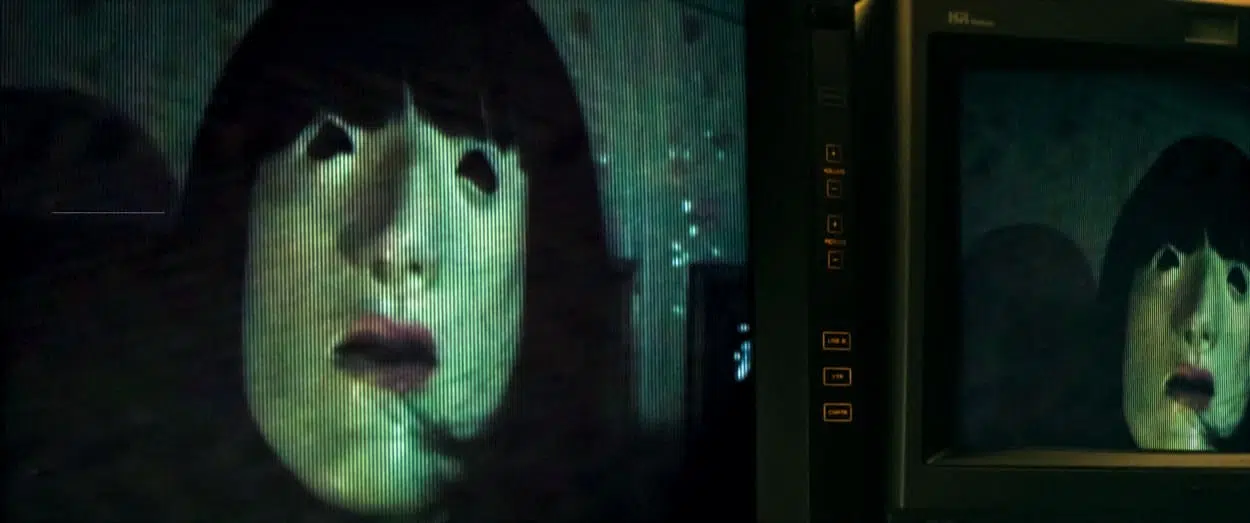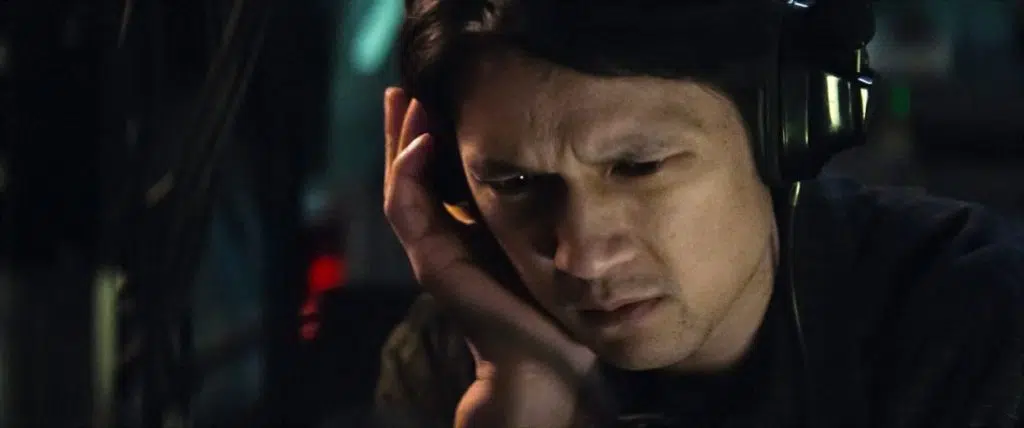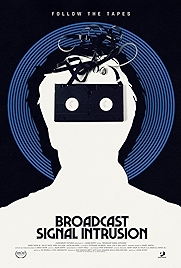Broadcast Signal Intrusion is a horror film set in ye olden tymes when VHS was still standard-issue home-entertainment tech and people stood outside to smoke cigarettes. Before then they smoked inside; after then, they’d mostly given up.
So it’s the 1990s. But the film reaches further back, into the mists of the 1980s where, it seems, there were several instances of TV stations being hijacked by a “broadcast signal intrusion”, when pirates would break into shows, terrorist style. An old story that’s reheated by James (Harry Shum Jr), an archivist in a dimly lit TV library who becomes obsessed with these old events and is soon riffling through the shelves looking for more examples of these intrusions, which took the form of weird masked figures making garbled pronouncements.
James is convinced these hijackings of the airwaves have something to do with the abduction of young women. How he’s come to that conclusion is slightly lost in the weeds, though a local academic (Steve Pringle) who wrote a report on the phenomenon back in the day provides some connective material.
Director Jacob Gentry has some fun recreating one of the shows broken into – a 1980s robot-flavoured geekcom called Sal-e Sparks, which has a theme tune of honking sax and soft jazz electric piano and looks like it might be an antediluvian version of The Big Bang Theory.
Writers Tim Woodall and Phil Drinkwater’s story contains an echo of the 2014 Irish movie The Canal – archivist investigates a crime – and as James uses more tech trickery to cut through the fog of VHS tape, make the murky bright and the jumbled intelligible, there are hints that 2012’s Berberian Sound Studio might also be a plot reference point.
But really the mood Gentry is after is The Matrix on a budget, starting with his star, Shum Jr, who has Keanu-alike Asiatic good looks, and continuing with characters with “haunching over a keyboard” tendencies, a crepuscular colour palette, blipping terminals, a sense of conspiracy and even the odd phone booth. This might be going out on a limb, but was Gentry deliberately using a Jim Reeves song at one point as a subtle, surname nudge towards Keanu? Fanciful, surely?
Or maybe that’s all just part of the archaeological interest of Drinkwater and Goodall in the mining of culture. At one point a subterranean car park becomes significant (which is all very 1970s), at another Morse Code becomes a breakthrough part of the storyline.
Meanwhile, these dark-haired, pale characters glimpsed in these weird old broadcasts are J-Horror throwbacks, and provide stabs of shock in a film that just kind of flows along. Looked at coolly, there’s not much going on here. For the most part it’s a case of characters talking to each other on a number of low-budget sets, including what look sometimes like motel rooms pressed into service.
The individual elements – the actors, the sets, the plot, the lighting, the camera, the soundtrack – none of them is outstanding. I’m not saying they’re bad. The craft and acting is good – strong, skilled. But Gentry and the team are working within genre rather than trying to probe its extremities. No one is particularly flexing, though Ben Lovett’s score, often of discordant pianos or a distant trumpet, is furthest along the road to being out there.
What makes Broadcast Signal Intrusion interesting is the way that the elements connect up. It’s the mood that carries it through, over odd moments of subpar acting, through budgetary constraints that are clearly becoming a problem and over plot holes – what about those missing women?
Never mind the plot, feel the ambience, in other words. A wallow in atmosphere that manages to ride through its lack of cash, it tees us up nicely for what Gentry et al are going to do next.
Broadcast Signal Intrusion – Watch it/buy it at Amazon
I am an Amazon affiliate
© Steve Morrissey 2022


